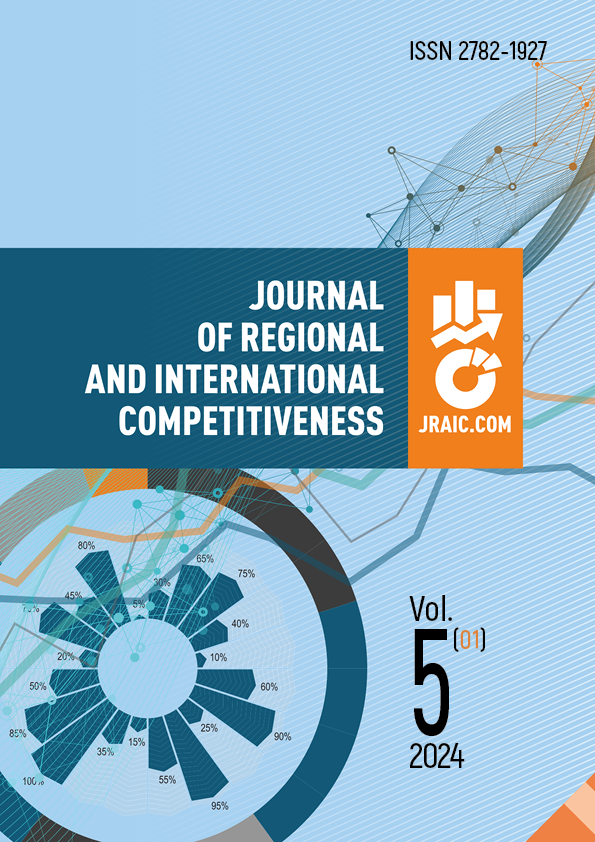Moscow, Moscow, Russian Federation
The new generation of artificial intelligence technologies occurrence represented by ChatGPT is the beginning of the Artificial General Intelligence (AGI) era. In contrast to the impact of weak AI technologies on international relations discussed in the previous era, AGI is no longer just a tool in the traditional sense. The human-computer integration facilitated by AGI technology will rapidly and deeply penetrate into all areas of social policy and economy. It also may change the mode of social production and economic development, influence international relations and geopolitics by transforming the comprehensive state capacity, and simultaneously force new challenges in global governance. The acknowledgement of a new generation of AGI technological qualitative changes’ impact on future changes in international relations is no longer the fantasy; the underlying AGI changes in labour productivity will certainly lead to a disruptive reconfiguration of future international relations.
ChatGPT; General Artificial Intelligence; digital technology; international relations
1. Shazeda, A. (2018). AI, China, Russia and the Global Order: Technological, Political, Global and Creative Perspectives. NSI: Air University Press.
2. Brian, A. (2018). Complex Economics. Oxford: Oxford University Press.
3. Ndzenjo, B., & Marwala, T. (2023). Artificial Intelligence and theories of international Relations. New York: Palgrave Macmillan.
4. Acemoglu, D., & Johnson, S. (2023). Power and Progress: Our Millennial Struggle for Technology and Prosperity. New York: Public Relations.
5. Petokoukis, J. (2023). Why Generative AI can Have a Huge Impact on Economic Growth and Productivity. American Enterprise Institute, March 27, 2023. Retrieved from https://www.aei.org/articles/why-goldman-sachs-thinks-generative-ai-could-have-a-huge-impact-on - economic-growth-and-productivity/ (accessed 10.01.2024).
6. Markov, J. (2017). A Brief History of Artificial Intelligence. California: Management Review.
7. KunHai, R. (2005). Social problems related to the development of artificial intelligence. The Problem of responsibility. Philosophical Scientific Journal, (2), 69–78.
8. Shan, R., & Yuan, Yu. (2020). The Internet of Things and Artificial Intelligence, Smart Innovation, Systems and Technologies. Singapore: Springer.
9. Fang, Z., & Michener, C. (2022). Methods of Artificial Intelligence. New York: Palgrave Macmillan.
10. Guanlin, L. (2022). The impact of weak artificial intelligence technologies on international relations. Jilin: Jilin University.
11. Horowitz, M. K. (2018). Artificial Intelligence, International Competition and the Balance of Power. American Defense Policy: JHU Press.
12. Cummings, M. L. (2018). Artificial Intelligence and International Relations: Expected Shocks. New York: Chatham House.
13. Bailey, M. N., Brynjolfsson E., & Korinek, A. (2023). Mind Machines: The Case for an AI-powered Productivity Boom. Indian Strategic Studies, 15 april 2024. Retrieved from https://www.brookings.edu/research/machines-of-mind-the-case-for-an-ai-powered-productivity-boom / (accessed 13.01.2024).
14. Medersky, B., & Shovkunov, B. (2021). Search and intelligence. John Wiley & Sons, Inc.
15. Mainger, M. (2013). Flying Robots. Lightning Bolt Books: Robotics.
16. Miaille, N. (2018). The geopolitics of artificial intelligence: The return of empires? Politique étrangère, 3, 105–117.
17. Gilpin, R. (2020). Global Political Economy: Interpreting the International Economic Order. Princeton: Princeton University Press.
18. Shuai, F. (2018). International Relations in the Era of Artificial Intelligence: Towards a Changing and Unequal World. Diplomatic Review, (1), 128–156.
19. Nanping, Yu. (2020). The Game of Great Powers in the context of the Artificial Intelligence Revolution: an analytical perspective on structural Changes in the Global Value Chain. International Relations Studies, 1(1), 3–25.
20. Bei, Y., & Xu, K. (2023). Restructuring and intervention: an analysis of the impact of artificial intelligence technologies on the structure of international power. World Economic and Political Forum, (1), 86–111.
21. Wu, S., & Irsoy, O. (2023). A Big Language Model for Finance. Bloomberg: GPT.




















